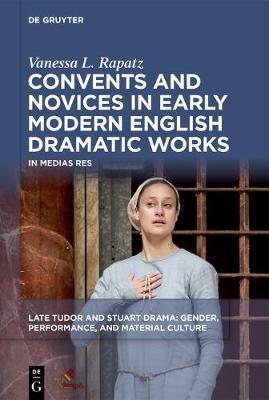Late Tudor and Stuart Drama
1 total work
Convents and Novices in Early Modern English Dramatic Works
by Vanessa L. Rapatz
Published 23 March 2020
Convents and Novices in Early Modern English Dramatic Works attends to the religious, social, and material changes in England during the century following the Reformation, specifically examining how the English came to terms with the meanings of convents and novices even after they disappeared from the physical and social landscape. In five chapters, it traces convents and novices across a range of dramatic texts that refuse easy generic classification: problem plays such as Shakespeare's Measure for Measure; Marlowe's comic tragedy The Jew of Malta; Margaret Cavendish's closet dramas The Convent of Pleasure and The Religious; Aphra Behn's Restoration comedy The Rover; and seventeenth-century dialogues that include both a Catholic treatise promoting women's entrance into European convents and a proto-pornographic expose of such convents. Convents, novices, and problem plays emerge as parallel sites of ambiguity that reflect the social, political, and religious uncertainties England faced after the Reformation.
